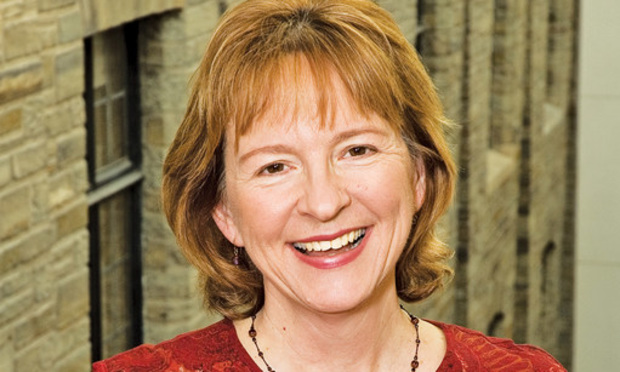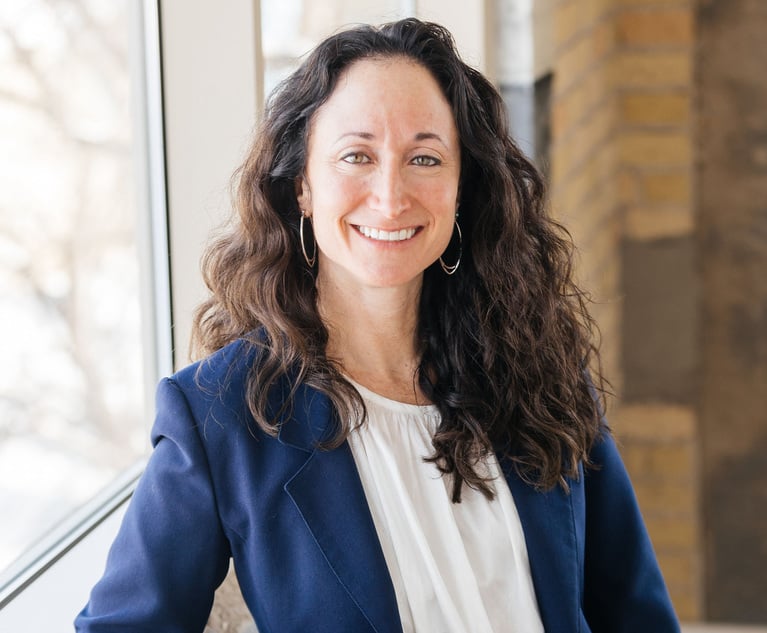Trial by Jury: An American Expert Tells Us What We're Losing
If you follow high-profile trials, you might be surprised to learn that the jury system is in serious decline in America. That's a big problem.
April 20, 2018 at 05:10 PM
5 minute read

High-profile jury trials offer a seemingly endless supply of news and entertainment. We are in the midst of a flurry of stories about the retrial in Bill Cosby's criminal case on charges of sexual assault. Implications of his jury trial are already being debated for what it tells us about the state of the nation: How is the #MeToo movement influencing Cosby's jurors? Do we still blame victims?
If you follow high-profile trials, you might be surprised to learn that the jury system is in serious decline in America. That's a big problem. The jury system's ascendance in the country of Argentina holds lessons for what we are losing and why we need to halt the decline.
This past summer, 5,000 miles away, in San Isidro, Argentina, a remarkable jury trial transfixed the public there. For most of Argentina's history, professional judges, not juries, have resolved criminal cases. Yet its courts and judges suffer from a crisis of legitimacy. In a remarkable response, within the last dozen years, five provinces have introduced jury systems.
Thus it happened that Argentine millionaire businessman Fernando Farré, charged with murdering his wife Claudia Schaefer during bitter divorce proceedings, would be judged by his peers, individuals new to the idea of trial by jury. Most Argentines who receive a jury summons know very little if anything about their country's bold experiment with jury trials. Would these novice jurors be up to the task of resolving Farré's guilt?
The case against Farré was complex. Substantial evidence pointed toward guilt. Farré had been violent to his wife in the past, and witnesses confirmed that Farré stabbed his wife dozens of times. But jurors had to weigh these facts against complicated testimony about Farré's claim that he was not legally responsible because of insanity. Many Argentines feared that a jury would be lenient toward a wealthy businessman, even one accused of a horrific crime. Would a rich man get away with murder?
Farré's jury retired to deliberate, and the nation went on high alert. Two hours later, the jurors emerged saying that they had a verdict. Argentines gathered in the streets and crowded around bar televisions to watch the announcement of the jury's verdict. As the foreman declared that the jury unanimously found the defendant guilty as charged, those observing in the courtroom and in the streets erupted in applause. The collective sense was that justice had been done.
The expansion of trial by jury in Argentine courts is having salutary effects on the jurors who serve and on the justice system more broadly. Because trials are decided by regular citizens, judges and lawyers must present the evidence and the law in ways that laypeople can understand, increasing the transparency and accessibility of what goes on in the courtrooms.
My research collaborators and I are studying Argentina's new juries, and we are finding that the vast majority of jurors have very positive reactions to their experience. They are proud of their contributions and have become more favorable about juries and about the courts. Case by case, verdict by verdict, Argentine jury trials are helping to increase the legitimacy of the country's legal system.
Back in America, trial by jury is a vanishing institution. In both federal and state courts, there has been a dramatic decline in cases resolved by jury trials. On the criminal trial side, sentencing guidelines and mandatory minimum sentences have made going to trial riskier, and growing numbers of defendants accept plea bargains instead. Reforms to the civil justice system such as changes in legal rules and limits on damage awards, coupled with the mandatory arbitration clauses in many consumer contracts, have combined to decrease the number and percentage of civil disputes resolved through jury trial.
These declines mean that far fewer Americans are serving as jurors, a decline that has negative consequences for democracy. Jury service boosts voting and other forms of political participation. As we are discovering in Argentina, in the U.S., people become more favorable toward juries, judges, and the courts as legitimate tools for resolving our disputes. Having fewer citizens serve as jurors robs us of a potent method of civic engagement. Millenials, growing up in a period of declining trials, are now less likely than older Americans to consider jury service as part of being a good citizen. As Preet Bharara, former U.S. attorney in Manhattan concluded, “When trials vanish, citizenship also suffers.”
The Argentine experience should remind us here in the United States about the enduring benefits of our democratic experiment with trial by jury and what we are losing as it slips into oblivion. We need to reconsider the rules and practices that have reduced jury trials.
Valerie P. Hans is professor of law at Cornell Law School and author or editor of eight books and over 150 research articles on law, social science and trial by jury.
This content has been archived. It is available through our partners, LexisNexis® and Bloomberg Law.
To view this content, please continue to their sites.
Not a Lexis Subscriber?
Subscribe Now
Not a Bloomberg Law Subscriber?
Subscribe Now
NOT FOR REPRINT
© 2025 ALM Global, LLC, All Rights Reserved. Request academic re-use from www.copyright.com. All other uses, submit a request to [email protected]. For more information visit Asset & Logo Licensing.
You Might Like
View All
‘Catholic Charities v. Wisconsin Labor and Industry Review Commission’: Another Consequence of 'Hobby Lobby'?
8 minute read
AI and Social Media Fakes: Are You Protecting Your Brand?

Neighboring States Have Either Passed or Proposed Climate Superfund Laws—Is Pennsylvania Next?
7 minute read
Trending Stories
- 1Data Disposition—Conquering the Seemingly Unscalable Mountain
- 2Who Are the Judges Assigned to Challenges to Trump’s Birthright Citizenship Order?
- 3Litigators of the Week: A Directed Verdict Win for Cisco in a West Texas Patent Case
- 4Litigator of the Week Runners-Up and Shout-Outs
- 5Womble Bond Becomes First Firm in UK to Roll Out AI Tool Firmwide
Who Got The Work
J. Brugh Lower of Gibbons has entered an appearance for industrial equipment supplier Devco Corporation in a pending trademark infringement lawsuit. The suit, accusing the defendant of selling knock-off Graco products, was filed Dec. 18 in New Jersey District Court by Rivkin Radler on behalf of Graco Inc. and Graco Minnesota. The case, assigned to U.S. District Judge Zahid N. Quraishi, is 3:24-cv-11294, Graco Inc. et al v. Devco Corporation.
Who Got The Work
Rebecca Maller-Stein and Kent A. Yalowitz of Arnold & Porter Kaye Scholer have entered their appearances for Hanaco Venture Capital and its executives, Lior Prosor and David Frankel, in a pending securities lawsuit. The action, filed on Dec. 24 in New York Southern District Court by Zell, Aron & Co. on behalf of Goldeneye Advisors, accuses the defendants of negligently and fraudulently managing the plaintiff's $1 million investment. The case, assigned to U.S. District Judge Vernon S. Broderick, is 1:24-cv-09918, Goldeneye Advisors, LLC v. Hanaco Venture Capital, Ltd. et al.
Who Got The Work
Attorneys from A&O Shearman has stepped in as defense counsel for Toronto-Dominion Bank and other defendants in a pending securities class action. The suit, filed Dec. 11 in New York Southern District Court by Bleichmar Fonti & Auld, accuses the defendants of concealing the bank's 'pervasive' deficiencies in regards to its compliance with the Bank Secrecy Act and the quality of its anti-money laundering controls. The case, assigned to U.S. District Judge Arun Subramanian, is 1:24-cv-09445, Gonzalez v. The Toronto-Dominion Bank et al.
Who Got The Work
Crown Castle International, a Pennsylvania company providing shared communications infrastructure, has turned to Luke D. Wolf of Gordon Rees Scully Mansukhani to fend off a pending breach-of-contract lawsuit. The court action, filed Nov. 25 in Michigan Eastern District Court by Hooper Hathaway PC on behalf of The Town Residences LLC, accuses Crown Castle of failing to transfer approximately $30,000 in utility payments from T-Mobile in breach of a roof-top lease and assignment agreement. The case, assigned to U.S. District Judge Susan K. Declercq, is 2:24-cv-13131, The Town Residences LLC v. T-Mobile US, Inc. et al.
Who Got The Work
Wilfred P. Coronato and Daniel M. Schwartz of McCarter & English have stepped in as defense counsel to Electrolux Home Products Inc. in a pending product liability lawsuit. The court action, filed Nov. 26 in New York Eastern District Court by Poulos Lopiccolo PC and Nagel Rice LLP on behalf of David Stern, alleges that the defendant's refrigerators’ drawers and shelving repeatedly break and fall apart within months after purchase. The case, assigned to U.S. District Judge Joan M. Azrack, is 2:24-cv-08204, Stern v. Electrolux Home Products, Inc.
Featured Firms
Law Offices of Gary Martin Hays & Associates, P.C.
(470) 294-1674
Law Offices of Mark E. Salomone
(857) 444-6468
Smith & Hassler
(713) 739-1250






